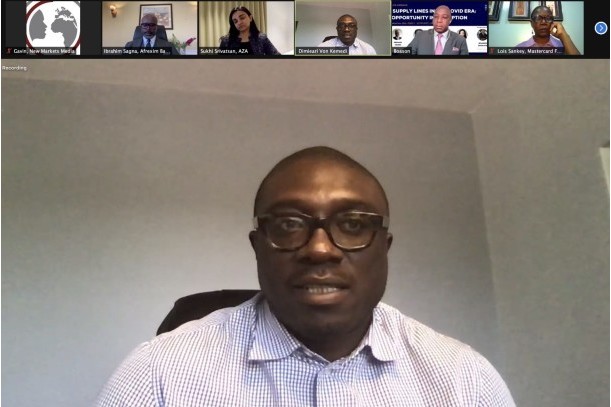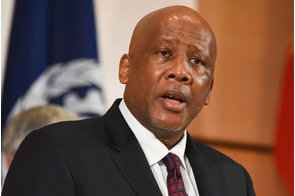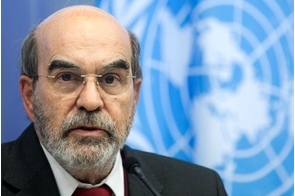Stakeholders discuss financing and food security for post-COVID-19 Africa

Summary
AZA, MasterCard and Afreximbank and beneficiaries including Nigeria’s Alluvial Agriculture showcase collaborations.
Africa’s biggest non-bank currency broker, AZA, said it recently hosted a conversation that explored solutions to Africa's food security, the continent's economic resilience and cross-border payment in the aftermath of the COVID-19 pandemic. In a statement sent to Financial Nigeria on Tuesday by the currency trading startup, AZA said COVID-19 has triggered critical innovations and breakthroughs that will outlive the pandemic’s health and economic disruptions.
Leading experts that participated in the conversation included Lois Sankey, Mastercard Foundation's Program Lead, Agriculture; and Ibrahim Sagna, Global Head, Advisory and Capital Markets at African Export-Import Bank (Afreximbank).
Other experts were Dimieari Von Kemedi, Co-Founder and Managing Director of Alluvial Agriculture; and Sukhi Srivatsan, AZA's Head of Inbound.
Mastercard Foundation, one of the world’s largest private foundations, provided a $20.4 million grant to Alluvial Agriculture – a Nigeria-based integrated farm management company – in October 2020 to provide very critical inputs to farmers. The financing will provide access to some 200 tractors, 330,000 kilograms of seeds, fertilizer, climate advisories and digital payment systems to 65,000 Nigerian farmers. It is also expected to strengthen the resilience of the agriculture sector in the aftermath of the pandemic and to withstand future crises such as climate change.
“Channeling our support through partners like Alluvial enables us to help provide very critical inputs to farmers,” Sankey said during the conversation. “Our support is geared towards aggregating as many young people as possible, attracting them to agriculture, which provides a means of employment, engaging them, also preventing them from being distracted into insurgency and banditry, etc.”
Sankey added that Mastercard Foundation’s target over the next nine years is to help in generating 30 million jobs in Africa, out of which 10 million would be in Nigeria. That means a target of about one million jobs per year for Nigeria, she said.
Von Kemedi, Co-Founder and Managing Director of Alluvial Agriculture, discussed some of challenges farmers have faced in Nigeria and how the firm's partnership with Mastercard Foundation is helping to address those challenges. While COVID-19 impacted farmers this year, it has also been a very difficult year for farmers for other reasons.
He mentioned the disruptions to supply of inputs caused by the restriction of interstate movement around March and April, a period that is most critical for the farming season. He also mentioned floods and droughts, which have affected many farmers. Von Kemedi said the introduction of digital payment systems has been a critical innovation that is helping to effect transactions with farmers, including those that have no bank accounts.
“As part of our partnership with Mastercard Foundation, we are developing jointly with Mastercard Farmers Network a payment system that can take care of those who only have phone numbers, without a bank account, and also those who have accounts in various banks. Hopefully before the end of December we will have that system ready,” Von Kemedi added.
Speaking on the post-pandemic crisis in Africa and solutions that are available, Sagna, Afreximbank’s Global Head, Advisory and Capital Markets, discussed the various health and economic impacts of the pandemic, including the loss of revenue experienced by countries due to the disruption on global trade. He said development finance institutions like Afreximbank must be constantly ready with counter-cyclical products to rise to such challenges.
“A crisis is always an opportunity for innovation irrespective of the industry. It is in times of constraints that human creativity rises to the occasion. At our own level, we innovated both to prevent the financial crisis and to improve the health situation. “
According to Sagna, Afreximbank innovated in various ways including launching the Pan-African Payment and Settlement System (PAPSS) in collaboration with the African Union and some African central banks. PAPSS enables payments for intra-African trade to be made in African currencies.
The multilateral trade finance institution is also investing in roads, rail and different cross-border infrastructure in Africa. Sagna said Afreximbank's balance sheet crossed the $19 billion mark in 2020 under the leadership of Benedict Oramah, president of the institution.
AZA’s Srivatsan spoke on solutions to post-pandemic cross-border payment challenges. She said the company’s role is to help businesses with their cross-border payment needs, especially at a time like this. According to her, there has been an uptick in requests from businesses asking for digital methods of payment because of the difficulty of going to bank branches in person to carry out transactions.
“One of the things fintechs could do a lot better and continue improving on is really understanding a business’s true problems and their needs and listen very carefully to what the exact issues are,” Srivatsan said. “We need to work across the fragmented systems in each country but also work with the regulators and with the banks to grow the ecosystem.”
Related
-
AU signs Abidjan Declaration on nutrition and food security in Africa
It is estimated that 61.4 million African children under five years are stunted, more than 12 million are wasted, and some ...
-
Digitalization is key to enhance nutrition and food safety – FAO
Food contaminated with bacteria, viruses, parasites, toxins or chemicals causes more than 600 million people to fall ill ...
-
2021 is International Year of Fruits and Vegetables. But safety of the foods for consumption is ...
The four-point objective of the United Nations in its declaration of 2021 as the IYFV failed to put necessary emphasis on ...










